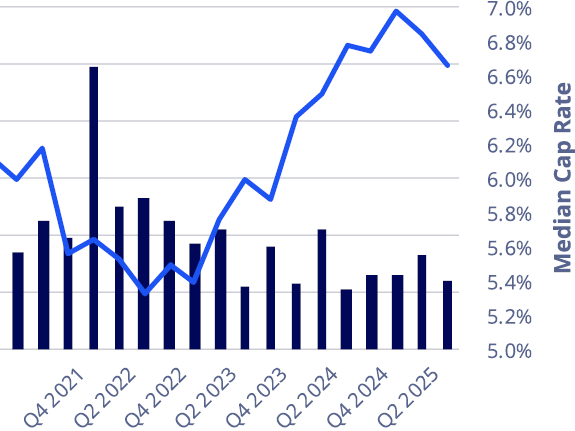Is Economic Long COVID What’s Ailing CRE?
“The Fed’s rhetoric of an overheated economy is simply wrong,” says Peter Linneman in his May column.
The economy is not overheated—as proclaimed by the Fed—nor is it in a recession. The economy has a bad case of economic long COVID. This means we are still living with the policy-related economic effects of the COVID-19 pandemic.
While real GDP is above the pre-pandemic level and growing, it is lagging by 2.5 percent from where it should be had the pandemic not occurred. Thus, the Fed’s rhetoric of an overheated economy is simply wrong. The same is true for the labor force, which lags the pre-COVID-19 trend by 1.2 million jobs.
READ ALSO: The Fed’s Misguided Path on Interest Rates
The pandemic particularly affected older workers who never returned to work after the shutdown. While improved, we are also still working through lingering shutdown-related supply chain issues, which resulted in massive year-over-year inflation. To top it off, we have endured unprecedented monetary policy and drunken sailor fiscal policy over the last few years.
Absent COVID-19 and the policy responses across the U.S. and around the world, we would not have seen oil prices go negative and then spike to $125, huge GDP declines, a cessation of travel, a spike in online retail, unparalleled peace time spending and borrowing, people working from home and refusing to return to work, massive illness and death, medical breakthroughs, a shortage of autos, surging inflation, huge job cuts and rebounds etc. Unprecedented events create unprecedented reactions, and actions—particularly those by governments—have unintended, far-reaching and long-lasting consequences.
An underappreciated result of economic long COVID is that about 42 percent of the roughly 131 million U.S. households took the opportunity to lock in ultra-low mortgage rates for 30 years on their nearly $11 trillion—an average of $200,000 per borrower—residential debt. As a result, these households have little incentive to move, which puts some home purchases on pause. However, these same households benefit from an average of about $4,000 to $5,000 a year of additional spending power due to lower-than-normal mortgage payments.
No better metric exemplifies the lingering impact of economic long COVID than inflation. It spiked due to the COVID-19 supply shutdown and the corresponding gap versus rising demand. It subsequently declined over the last six months as the result of returning supply as producers responded to the high prices driven by excess demand across the economy. This is the price moderation we had predicted, though it came about 6-8 months later than we anticipated. But left to their own devices, markets tend to work.
What does the Fed do in 2023? No one knows, including the Fed. With annualized month-over-month inflation of 1.5-2.5 percent, there is no reason the short-term interest rate should be at 5 percent. Yet, the Fed continues to pursue a bizarre monetary policy. We expect that they will raise the Fed Funds Rate one more time, probably by 25 basis points, and that by summer 2023, they will see that they have misdiagnosed inflation and the economy. Only then will they start cutting rates back toward 2.5-3.5 percent, which should have occurred in November 2022.
We have not gone through a full post-pandemic cycle to know what happens when a very difficult labor market persists. However, it is nonsense to believe that the answer to this shortage and long economic COVID is for the government to pursue policies that create 1-2 million more unemployed people. But that is what the Fed is doing. It is a ‘don’t raise the bridge, lower the water’ policy. The only economically sensible answer is to adopt policies that encourage people to work. Growth, not shrinking, is the key to getting rid of economic long COVID.
Excerpt from The Linneman Letter, Spring 2023
Dr. Peter Linneman is a Principal and Founder of Linneman Associates and Professor Emeritus at the Wharton School of Business, University of Pennsylvania. Follow Dr. Linneman on Twitter.









You must be logged in to post a comment.